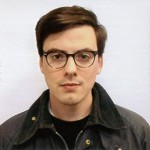Where are you from?
I’m from Ithaca, New York, which is somehow both pretty far upstate and nowhere near as upstate as is possible. It also has the dubious distinction of being 4 hours from basically anywhere.
What is your educational / professional background?
I did my undergrad at Cornell University, also in Ithaca, and majored in Science and Technology Studies with a Minor in Information Science. While there, I was affiliated with Phoebe Sengers’ Culturally Embedded Computing research group, considering the socio-cultural role of technologies in domains like affective computing. After undergrad, I went to New York City to begin a Master’s degree at NYU in the Interactive Telecommunications Program, where I had a lot of fun and learned to build strange things. My thesis work there was a series of prosthetics for emotional embodiment and expression. After ITP, I worked in industry for a few years, including as the lead UX and frontend developer for an energy-efficiency startup and as a web developer for Marvel Entertainment, where I sadly never met Stan Lee.
What activities are you involved with on campus? (project studios, collaborative projects, GRAs, clubs, etc)

Here at Tech, I’m a member of Carl DiSalvo’s Public Design Workshop, and currently a graduate researcher with the Intel Science and Technology Center for Social Computing, where I work with Ian Bogost developing small-scale prototyping platforms for everyday problem solving. Previously, I worked with Brian Magerko on the EarSketch project, which uses computational remixing of hip-hop music to help drive computer science education.
Describe your interests in the DM field?
I like digital media because it’s by nature formless. Manipulating code or electronics is a creative act on an order that is hard to find in other places. While constraints are a part of any system, figuring out a clean way to solve a problem elegantly is appealing. On top of that, a deeply reflexive obligation to media forms and history, along with the corresponding theoretical contexts means that novelty for novelty’s sake won’t go unchallenged. Finally, it’s clear that digital media tools and forms are a huge part of our everyday lives, but are probably under theorized in their goals, values, and meanings. I’d like to help figure that stuff out.
What has been your favorite project you’ve worked on so far? Why?
For me, my favorite project was probably a small series of implements I called Devotional Gardening Tools. These were meant to draw a parallel between repetitive tool-motions and repetitive practices like prayer. With a devotional tool, performing the work develops into a broader practice that is more reflexive and meditative. These tools were very simple: PVC pipe, laser-cut plastic, very simple electronics that only barely required a microcontroller, but offered an expressive perspective on the mundane.
Why did you choose DM at GT?
The Digital Media department is at an interesting confluence of a number of traditions. It provokes forward-looking technical practice and novel forms, while remaining rooted in traditional media studies and theoretical contexts. One thing that I like in general is that technologies are taken for granted: in many cases, it feels to me that the technologies themselves are the point of interest, to the detriment of other aspects of work. Here, conceptual quality is paramount, and the technical implementation comes second, and flows from the project’s aims.
What are your ambitions after finishing the DM program?
Right now, I’m hoping to find an academic job.
Why would you recommend the DM program to others?
In many ways, I think that the Digital Media program is a really excellent place for media practitioners to do a deeper dive into theoretical implications with and practical applications to their work. It’s a safe place to experiment, probe, and expand on existing work, and is receptive to a wide variety of mediums. The faculty diversity is huge, meaning that there is a wide variety of perspectives to appeal to or to (in some cases) justify how your work operates. As a part of a literature department in a technical school, we find ourselves in an interesting seam where neither side really knows what to do with us, and the freedom to explore is liberating.

